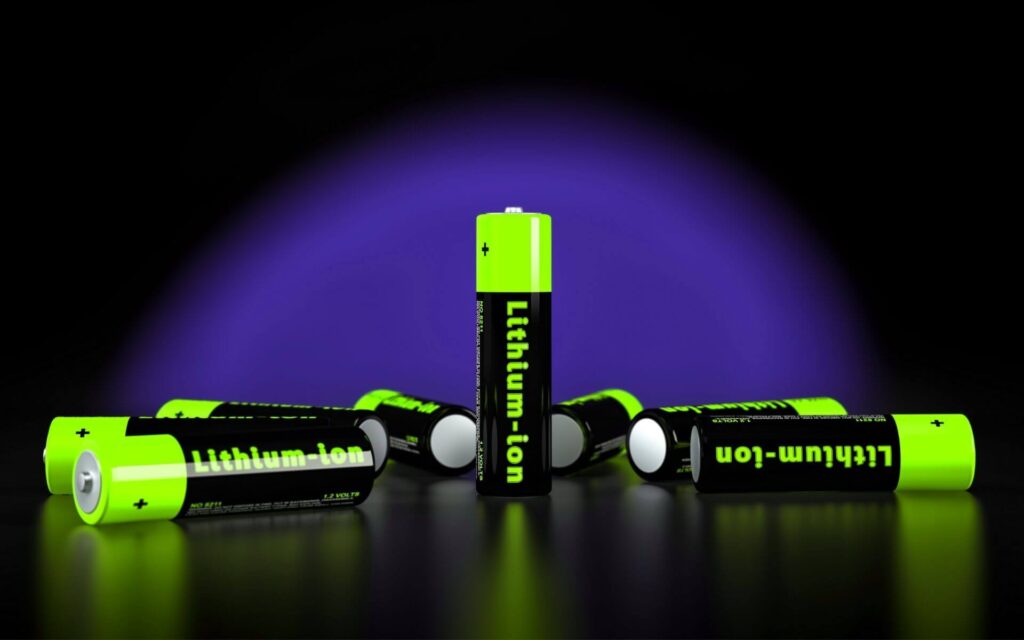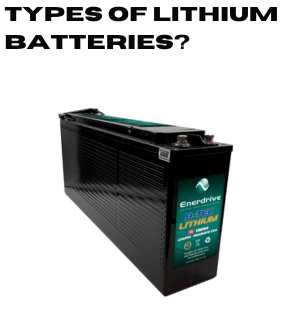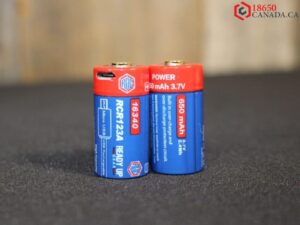Lithium batteries have become the go-to power source in numerous electronic devices due to their high energy density, lightweight nature, and long-lasting performance. These batteries have revolutionized the portable electronics industry, enabling the development of smaller, more efficient devices.
When it comes to lithium batteries, there are primarily three types that dominate the market: lithium-ion, lithium polymer, and lithium iron phosphate batteries. Each type possesses its own unique characteristics and caters to different applications. In this article, we will explore these three types of lithium batteries in detail, their working principles, advantages, disadvantages, and applications.
In this article, we explore the three main types of lithium batteries: lithium-ion, lithium polymer, and lithium iron phosphate. Lithium-ion batteries are widely used in portable electronic devices and offer high energy density, but require careful handling due to safety concerns. Lithium polymer batteries provide flexibility and slim designs, with improved safety and design options. Lithium iron phosphate batteries prioritize safety and have a longer lifespan, making them ideal for electric vehicles and renewable energy storage systems. Understanding the characteristics of each type helps in selecting the right lithium battery for specific applications, ensuring optimal performance, safety, and longevity.
Lithium-Ion Batteries
Lithium-ion batteries are widely used in portable electronic devices such as smartphones, laptops, and electric vehicles. They are rechargeable batteries that operate through the movement of lithium ions between two electrodes—an anode and a cathode—during charging and discharging cycles. The electrolyte within the battery facilitates ion movement.

One of the key advantages of lithium-ion batteries is their high energy density, allowing them to store a significant amount of energy in a compact size. They also have a low self-discharge rate, meaning they can hold their charge for extended periods when not in use. However, lithium-ion batteries do have limitations, such as the potential for thermal runaway if not properly handled or maintained. This can lead to safety concerns and the risk of fire or explosion. Despite this, the advantages of lithium-ion batteries outweigh the drawbacks, making them the preferred choice for various applications.
Lithium Polymer Batteries
Lithium polymer batteries share similarities with lithium-ion batteries but differ in their electrolyte composition. Instead of using a liquid electrolyte, lithium polymer batteries utilize a solid or gel-like polymer electrolyte. This design flexibility allows for thinner and more flexible battery shapes, making them ideal for slim and lightweight devices such as tablets, wearables, and drones.
The advantages of lithium polymer batteries include a higher level of safety due to the absence of a liquid electrolyte, enhanced flexibility in battery shape, and improved energy density compared to traditional lithium-ion batteries. They also have a lower risk of leakage and can be manufactured in various sizes and shapes. However, lithium polymer batteries are generally more expensive to produce and have a slightly lower energy density compared to lithium-ion batteries.
Lithium Iron Phosphate Batteries
Lithium iron phosphate batteries, often referred to as LiFePO4 batteries, are known for their exceptional safety, long cycle life, and thermal stability. They are commonly used in applications that prioritize safety, such as electric vehicles, power tools, and renewable energy storage systems.
The key advantage of lithium iron phosphate batteries is their superior thermal and chemical stability, making them highly resistant to thermal runaway or combustion. They also have a longer lifespan and can withstand a higher number of charge-discharge cycles compared to lithium-ion and lithium-polymer batteries. However, lithium iron phosphate batteries tend to have a lower energy density, resulting in a larger physical size and weight compared to other lithium battery types.
Comparison of the Three Types
When selecting a lithium battery for a specific application, several factors need to be considered. The choice depends on the desired energy density, safety requirements, cost constraints, and size limitations.
Lithium-ion batteries offer a good balance of energy density, cost-effectiveness, and application versatility. They are suitable for a wide range of consumer electronics and electric vehicles. Lithium polymer batteries, with their flexibility and slim profile, excel in devices that require unconventional shapes or ultra-thin designs. On the other hand, lithium iron phosphate batteries provide excellent safety, long cycle life, and stability, making them ideal for applications where safety is paramount.
Closure
Lithium batteries come in three main types: lithium-ion, lithium polymer, and lithium iron phosphate. Each type offers its own set of advantages and disadvantages, catering to different applications and requirements. Whether it’s the high energy density of lithium-ion batteries, the flexibility of lithium polymer batteries, or the safety and long cycle life of lithium iron phosphate batteries, choosing the right type is crucial for optimal performance and safety.
Lithium batteries have transformed the way we power our portable devices and vehicles. Understanding the differences between lithium-ion, lithium polymer, and lithium iron phosphate batteries is essential for selecting the appropriate type for specific applications. Whether it’s a compact smartphone or a large-scale energy storage system, the right lithium battery can provide the desired balance of performance, safety, and longevity.
If you have found this prompt to be genuinely helpful, we kindly request you to demonstrate your support and appreciation by giving it a thumbs-up or liking it.
FAQs
What is the Lifespan of a Lithium Battery?
Lithium battery lifespan varies depending on factors such as usage, temperature, and charging habits. Generally, lithium-ion batteries have a lifespan of 2 to 3 years, while lithium-iron phosphate batteries can last up to 10 years or more with proper care.
Are Lithium Batteries Environmentally Friendly?
Lithium batteries are more environmentally friendly compared to traditional lead-acid batteries. They don’t contain toxic heavy metals like mercury or cadmium, but proper recycling and disposal are still crucial to minimize environmental impact.
Can Lithium Batteries be Recycled?
Yes, lithium batteries can and should be recycled to recover valuable materials and prevent potential environmental pollution. Many recycling centers accept lithium batteries, so be sure to dispose of them properly.
Can Lithium Batteries Explode?
While the risk is low, lithium batteries can potentially explode or catch fire if mishandled, damaged, or exposed to extreme conditions such as high temperatures. Following safety guidelines and avoiding physical damage is important to mitigate these risks.
How Do Lithium Batteries Compare to Other Battery Types?
Compared to other battery types like lead-acid or nickel-based batteries, lithium batteries offer higher energy density, longer cycle life, lighter weight, and better performance. However, each battery type has its own strengths and weaknesses, and the choice depends on the specific application requirements.

